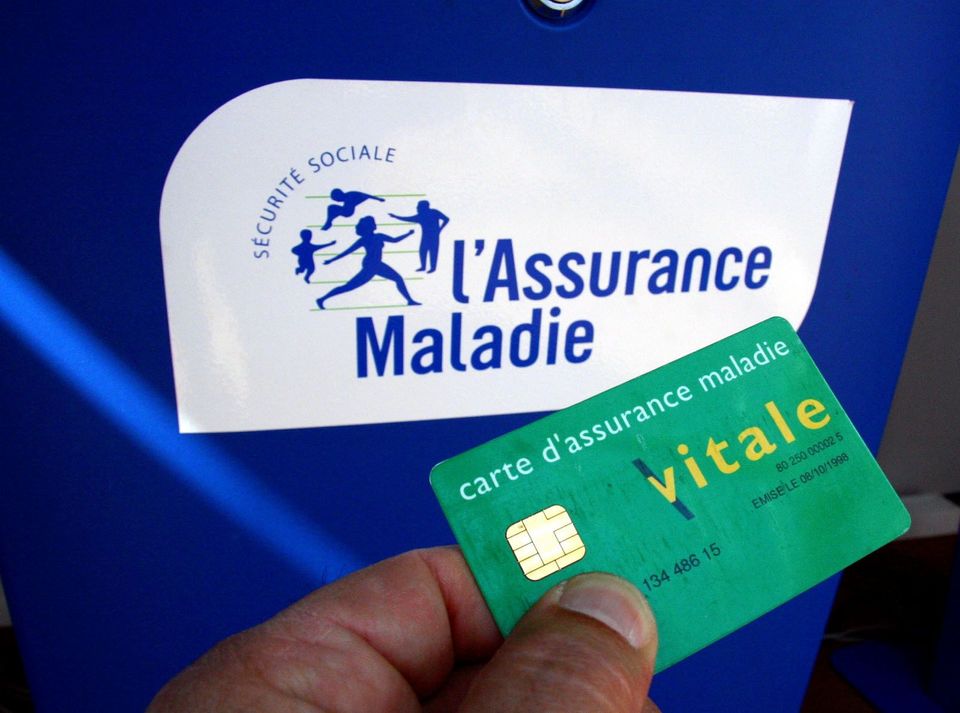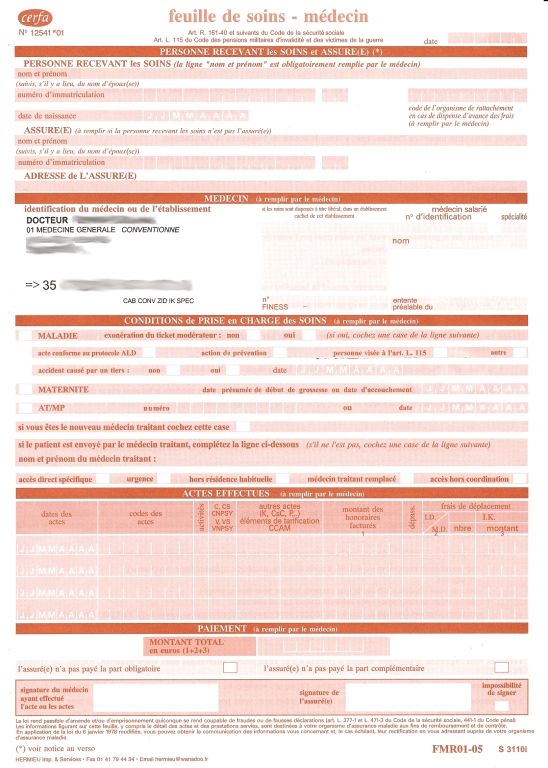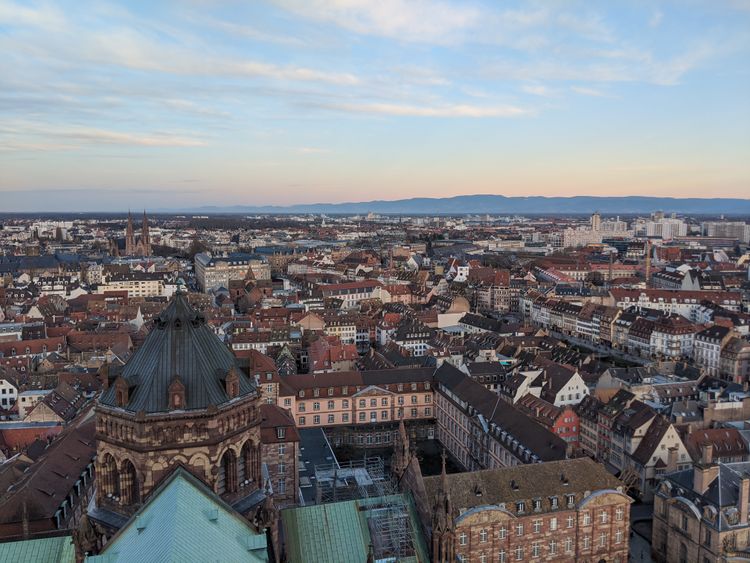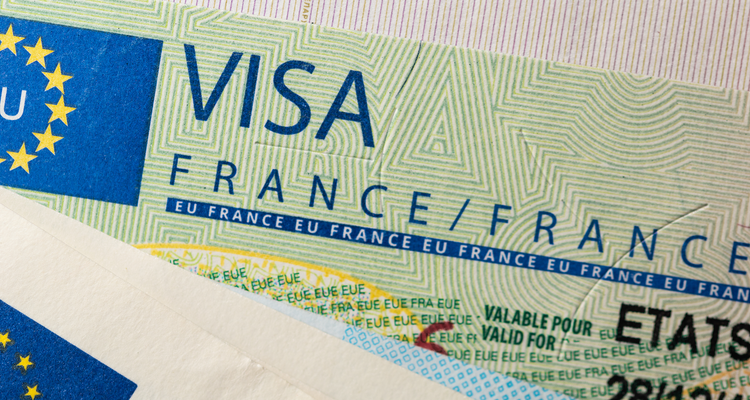The Foreigner's Guide to French Healthcare

Last updated March 6, 2023
No matter what a new arrival’s situation is, if you are on any type of long-term stay in France, it’s important to be aware of your healthcare situation and how to access your medications. In this post, I’ll try to cover all of the most important information.
Here is some important vocabulary to know:
- l’Assurance maladie: the official name for the healthcare provided by the French government
- La sécurité sociale (often shortened colloquially to “la sécu”): The broader term used to benefits provided by the French government, but is also used to refer to the national healthcare
- Carte vitale: the card used to show your official registration into the Assurance Maladie
- Un remboursement/remboursé: a reimbursement/reimbursed, can mean the amount of money that the Assurance Maladie will pay you back
- Une ordonnance: A prescription, whether it be for a medication or to see a specialist
- Numéro de sécurité sociale: your official registration number with the Assurance Maladie. Unlike an American Social Security Number, this has nothing to do with taxes
- Numéro provisoire: Upon arrival in France, many foreigners will have a “temporary number” that works as their numéro de sécurité sociale. It will later be changed to a permanent number, but still ensures your healthcare coverage. Unlike your permanent number, it will start with an 8
- Numéro définitif: This is your permanent numéro de sécurité sociale that will be issued to you by the Assurance Maladie. It will start with a 1 if you were assigned male at birth or a 2 if you were assigned female at birth. Once you receive this number, you will be eligible for a Carte Vitale
- la Caisse Primaire d'Assurance Maladie (CPAM): These function as regional-level offices of the Assurance Maladie and are where you will send any paperwork. Generally, foreigners are registered with the CPAM closest to them, with the exception of TAPIFers/assistants de langue, who are all registered with the CPAM of Paris
- Feuille de soins: This is a form you should ask for at any point of treatment (doctor’s appointment or picking up a prescription) if you don’t have your Carte Vitale when paying. This form confirms that you have paid the full amount of your treatment. You send this form onto your CPAM and can be reimbursed. If you are eligible for French healthcare coverage under your visa (includes international students and language assistants), you should ask for a feuille des soins even if you aren’t officially registered with the Assurance Maladie or have a numéro de sécurité sociale yet, as you can send them in once you are officially registered and get your money back
- Ameli: The online portal for the Assurance Maladie. Important to note: you can’t make an account/log in until you have a permanent number
- Médecin traitant: The French equivalent of your primary care doctor. You can declare a doctor as your médecin traitant either by having your doctor do an online declaration, through a form sent to your CPAM, or on Ameli
- Mutuelle/caisse complémentaire: This is a private insurance option that you can buy in addition to the coverage you get through the Assurance Maladie. It will cover things like vision and dental, and often pay for anything that the Assurance Maladie doesn’t cover.
- Tiers-payant: When the Assurance Maladie covers its part of your medical costs directly and you only have to cover the rest
Before Arriving in France
Before you even land in France, you should have a game plan for how to manage whatever medical care and prescriptions you need. Take the time to make sure that you are covered under the Assurance Maladie through your visa and if you are in France on a work visa, check with your employer to see what mutuelle they offer and what specific plans they have.
It’s also important to take stock of what medications you take, both over the counter and prescription, and make sure they’re available in France. When I was researching, I used the Vidal site, since it shows the cost of your medication and how much your medication will be reimbursed by the Assurance Maladie. When searching, don’t use the brand name of your medication, look for the chemical name (ie: don’t search “Advil,” search for ibuprofen instead).
Work with your medical team to stock up as much as possible on prescriptions before you leave so that you have plenty of time to figure things out in France. If there’s an over the counter medication that you take, buy a few extra packs and bring them too. When I came to France, I brought a bottle of ibuprofen and some cold medication, so that I would have things I know work for me in my medicine cabinet.
It’s important to note that medication in France won’t necessarily be the same status as in your home country. For example, many medications that are OTC in the US require a prescription in France (very strong allergy medications like Claritin D are a good example of this). Mental health medications also tend to be very different in France. Wellbutrin is not prescribed as an antidepressant here and most ADHD medications are illegal since they are amphetamines. I don’t personally have experience with this, but there is a very useful post on the TAPIF Reddit forum. Experiences can also vary a lot throughout France. In any case, make sure you start planning how to get all your medications several months before your departure.
If you have a specific medical issue that you will need treatment for in France, I strongly recommend having the doctor that treats you for that write a basic summary of your medical history. I did this and it helped my new French doctors a lot.
Based on the COVID-19 situation when you arrive, you may need to acquire a pass sanitaire/pass vaccinal. This proves that you are vaccinated against COVID. If you are from a European country that provides QR codes with vaccinations, chances are your QR code from home is sufficient. If not, you will have to convert your pass into a French QR code. This process to do this has changed over time and will probably continue to do so, but going into a pharmacy and paying ~35 euros has been available most of the time. At other points, an online portal has been available. If possible, try to do this before you arrive.
Arrival in France
If you need prescriptions written, I would recommend setting up an appointment with a general medicine doctor (un généraliste) as soon as you can. Bring your medication labels and prescriptions from your home country and your medical history to this appointment and get a prescription written. You can then take it to a pharmacy and have it filled. If you get along well with your doctor, then you can ask if they are accepting new patients as a médecin traitant (primary care physician). If they are, it would be a good idea to ask to have them take you on as a patient, since people who have declared a médecin traitant can get a bigger reimbursement on visits to specialized doctors.
If you aren’t yet registered with the Assurance Maladie or you don’t have a Carte Vitale yet, you will have to pay full price for both your doctor’s appointment and the prescriptions (an appointment with a généraliste will cost you about 25 euros). At both your doctor’s appointment and when picking up a prescription, you can ask for a feuille de soins. You can send this form to your CPAM and get the reimbursement deposited into your bank account. If you have a Carte Vitale, there are two options: 1) you pay the full price, but will be reimbursed without needing a feuille de soins or 2) the medical service offers the tiers-payant and you only pay what is left over.
Example: I am going to the pharmacy to get my prescription, but I only have a temporary number with the Assurance Maladie. My prescription costs 10 euros, but is reimbursed 65% (the maximum that the Assurance Maladie covers). Since I don’t have a Carte Vitale, I pay the full cost of the medication, 10 euros, and I get a feuille de soins from the pharmacist. I fill out the feuille de soins with my personal information and my temporary number and send it and a copy of my prescription to my local CPAM. After processing the form, the CPAM deposits 6.50 euros into my account.
The next time that I go to pick up my prescription, I now have my Carte Vitale. This time, I have to pay 10 euros to the pharmacist, but I don’t need a feuille de soins since I will be automatically reimbursed. If the pharmacy offers the tiers-payant, then I only have to pay 3.50 euros and the Assurance Maladie covers its part automatically.

Registering with the Assurance Maladie
The process of registering with the Assurance Maladie varies based on your visa situation. For international students, there is a website through Ameli.
As a language assistant, you will need to be registered by your school secretary. Sometimes, the secretaries will be mistaken and think this is not their responsibility, but stand up for yourself and make sure that they get this done. It’s not a difficult process, you will just need to provide some scanned documents (passport, visa, birth certificate, arrêté de nomination) and they upload it onto a form. Until you are able to make an Ameli account, all of your correspondence with the Assurance Maladie will be through the mail and they will send things to you through your school.
Everyday Medical Care in France
If you need to schedule a doctor’s appointment, the website/app Doctolib is the most common way to do so. It allows you to filter for a specialist, town, and even the languages that the doctor speaks (however, don’t be surprised if your doctor doesn’t speak this language to you immediately, you may have to ask them to switch out of French). Many doctors in France will also have walk-in times, so checking what the offices near your home offer is useful.
If you need to treat something minor, a great place to go is the pharmacy. You go up to the counter and tell the pharmacist what your problem is, and they will either give you medication, tell you how to treat it, or tell you that you should go to the doctor.
In a pinch, many major cities also have a service called SOS Médecins, which is a 24/7 type of urgent care.
Calling Out Sick
In France, your employer doesn’t give you a set number of sick days. Instead, anytime you call out sick from work, you need a doctor’s note. You can get this form, called an arrêt de travail, by seeing a doctor on your sick day. The arrêt de travail can be just for the initial sick day or for a longer set time period, if the doctor thinks you’ll need it.
If you don’t get an arrêt de travail, you will either have to take a pay cut or make up your hours.
Some Miscellaneous Notes
This is a collection of information about medicine I wish I had known earlier. I’ll keep updating it the more I learn.
- Outside of the US, acetaminophen (aka Tylenol) is called paracetamol. In France, the brand name is Doliprane.
- A great medication for menstrual cramps is Spasfon, which specifically treats cramping in several organs, including the uterus. This is an over the counter medication and only costs 2-3 euros.
- The French word for pill is comprimé. A lot of French medications are available to take up your butt (usually for children). These are called suppositoires. These are important words to know since a pharmacist will sometimes ask what form you want your medication in.
- If you have glasses or contact lenses, you can get those prescribed and the products you need for them at an opticien.
- The medical appointment to validate your visa (OFII) has nothing to do with the Assurance Maladie.




